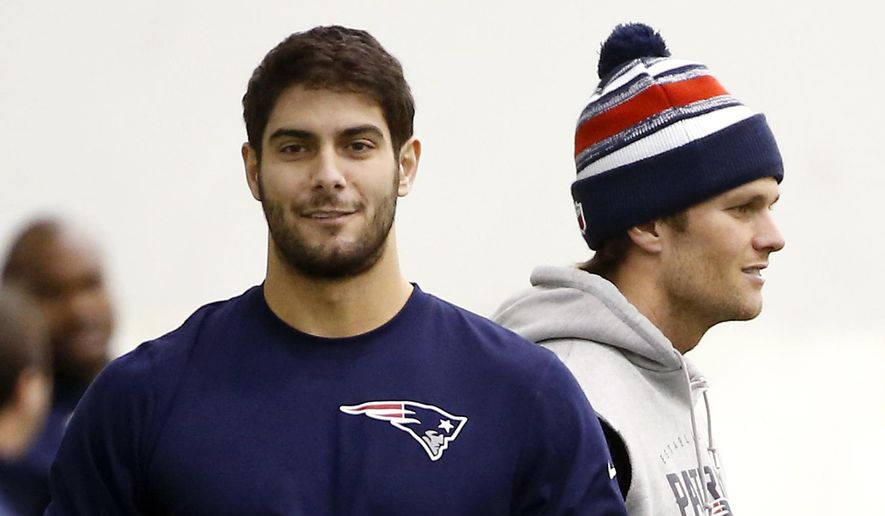Trent Williams was a highly touted offensive tackle coming out of Oklahoma in 2010. He was first-team All Big-12 two years in a row. He was a unanimous All-American selection in 2009.
Williams was the first player the Washington Redskins picked in the 2010 draft, the fourth player selected overall. He quickly became one of the premier left tackles in the NFL, named to seven straight Pro Bowls since 2012.
Geron Christian was an unheralded offensive tackle coming out of Louisville in 2018. He was picked in the third round by the Redskins, the 74th player in that draft.
Christian is as far removed from Williams, in terms of ability and stature, as the Redskins are as a franchise to the New England Patriots. But the Redskins’ decision to take the prospect infuriated the celebrated, established Williams, according to reports, adding to the animosity between the team and Williams.
And this is why NFL players will never be able to collectively mount a work stoppage in their battle with owners for a game-changing labor deal.
Tom Brady was not an elite quarterback coming out of Michigan in 2000, but he did start every game for the Wolverines for two seasons before battling with Drew Henson for the job in his senior year. He was an All-Big Ten honorable mention in 1998 and 1999 and led Michigan to 20 wins in 25 starts. He was not drafted until the sixth round by the New England Patriots in the 2000 draft, the 199th player selected overall.
Brady would go on to lead the Patriots to their first title in 2001 and was named Super Bowl Most Valuable Player. He would go on to win five more titles, three more Super Bowl MVPs, three NFL MVP honors and was named to 14 Pro Bowls.
By 2014, Jimmy Garoppolo was picked in the second round by the Patriots. Garoppolo had a celebrated college career, but on a small stage at Eastern Illinois. He has two Super Bowl rings, thanks to Brady.
Yet the story is that Brady was so upset by the presence of Garoppolo on the roster that he forced owner Robert Kraft to trade the backup to San Francisco in 2017. Garoppolo led the 49ers to the NFC title this past season, only to lose 31-20 to the Kansas City Chiefs in last month’s Super Bowl.
Now the Patriots are faced with no replacement for Brady, who may become a free agent.
And this also is why NFL players will never be able to collectively mount a work stoppage in their battle with owners for a game-changing labor deal.
The NFL players union is now embroiled in an internal battle over whether or not to accept the offer from owners. On one side of the disagreement are stars like Aaron Rodgers, J.J. Watt and Russell Wilson, who have come out against the owners’ proposal, which includes more money for the rank-and-file players as a sweetener to agree to a 17-game schedule.
“The value of our players and the strength of the NFLPA can only be realized, if we ourselves know and believe in our worth,” Rodgers wrote in a social media take.
Brave talk for a union that, when it is faced with the prospect of missing paychecks for any extended length of time, folds like a lawn chair. Unlike other professional athletes, football players are seeped in a culture in which they see fellow union members as threats to their livelihoods.
In baseball, stars sign 13-year contracts. In football, the mantra is “next man up.”
Jobs are always on the line.
Williams didn’t see a Redskins teammate or union brother when the team drafted Christian. He saw a threat to his future, no matter how unlikely that might seem. Same with Brady — the greatest quarterback in the history of the NFL couldn’t live with an Eastern Illinois quarterback as a threat to his job.
Players like Rodgers, Watt and Wilson may feel empowered now, but what happens when the league somehow manages to exist without them — like it always does? In 1987, the last extended players strike, the owners used replacement players and it took all of two weeks for stars to cross the picket line and report to play — Joe Montana, Randy White, Steve Largent, Roger Craig — in all, 15% of the union crossed the picket lines to play.
Meanwhile, lower pay scale players that make up most of the league and exist one play away from the waiver wire are being asked by Rodgers, Watt, Wilson and other stars to sit home, watch the clock tick and turn down a labor package that will put more money in their pockets.
Redskins long snapper Nick Sundberg gets it. Sundberg, who said he voted for the collective bargaining agreement proposal, got into it on Twitter with former Redskins quarterback and Ravens backup Robert Griffin III, who has no clue what it means to be a union member.
RG3 urged players to “take a stand and vote no.”
Sundberg fired back: “You’ve got 6 XFL teams and probably 6,000 college kids coming out this year and next to fill rosters while we picket. You gonna be on the front lines at the stadium and facility every day fighting this?”
This is the fear most NFL players live with every day — someone will take their job. It is part of their DNA. It is what will always keep them from becoming Norma Rae.
⦁ Hear Thom Loverro on 106.7 The Fan Wednesdays and Saturdays and on the Kevin Sheehan podcast.
• Thom Loverro can be reached at tloverro@washingtontimes.com.




Please read our comment policy before commenting.